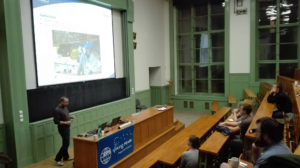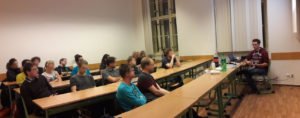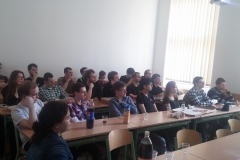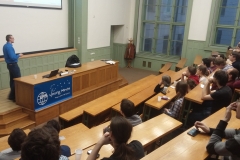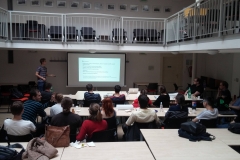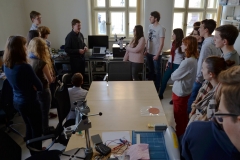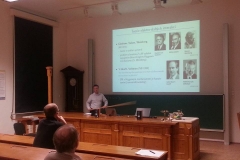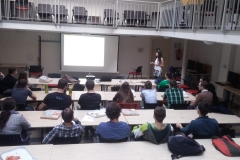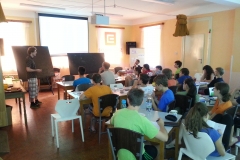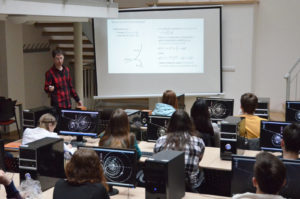 International Masterclasses is an annual event traditionally held in the first third of the year. 15 to 19 year old students are given an opportunity to discover particle physics. A total of approximately 10.000 high school students from 47 countries participate every year, effectively obtaining insight into topics and methods of basic research at the fundamentals of matter and forces. Not only are they given a chance to spend a whole day outside of school without receiving detention, but they also put their hands on an experiment themselves by performing measurements on real data from particle physics experiments at CERN. Almost 200 universities or research centres are involved in this project.
International Masterclasses is an annual event traditionally held in the first third of the year. 15 to 19 year old students are given an opportunity to discover particle physics. A total of approximately 10.000 high school students from 47 countries participate every year, effectively obtaining insight into topics and methods of basic research at the fundamentals of matter and forces. Not only are they given a chance to spend a whole day outside of school without receiving detention, but they also put their hands on an experiment themselves by performing measurements on real data from particle physics experiments at CERN. Almost 200 universities or research centres are involved in this project.
There are three participating institutes in the Czech Republic – the Institute of Physics at the Silesian University in Opava, the Institute of Particle and Nuclear Physics at the Charles University in Prague and the Faculty of Nuclear Sciences and Physical Engineering at the Czech Technical University (FNSPE CTU) in Prague.
This year’s International Particle Physics Masterclasses at the FNSPE CTU took place on April 7 2017 at the faculty’s headquarters with approximately 60 participating high-school students. The Czech part of the project is being organised in cooperation with the International Particle Physics Outreach Group, Prague EPS Young Minds section and CERN. The students are given a unique opportunity to become a particle physicist for one day without needing any prior knowledge of the subject.
In the morning, the students attended a series of instructive lectures given by scientists who actively work at CERN, whereas in the afternoon, an actual data analysis from two major LHC experiments – ATLAS and ALICE – was carried out. While analysing the experimental data from ATLAS, the students were given a chance to (re)discover the intermediate W bosons. The results were forwarded to CERN. The highlight of the day was a live videoconference with CERN physicists and with other teams from several universities abroad. At the very end, the best team (the team with the most accurate results) was proclaimed and awarded. During the day, organizers took care of having the lunch delivered as well as the preparation of refreshments, beverages and coffee for participating students.
More photos could be found at: https://flic.kr/s/aHskUQ8fPA

